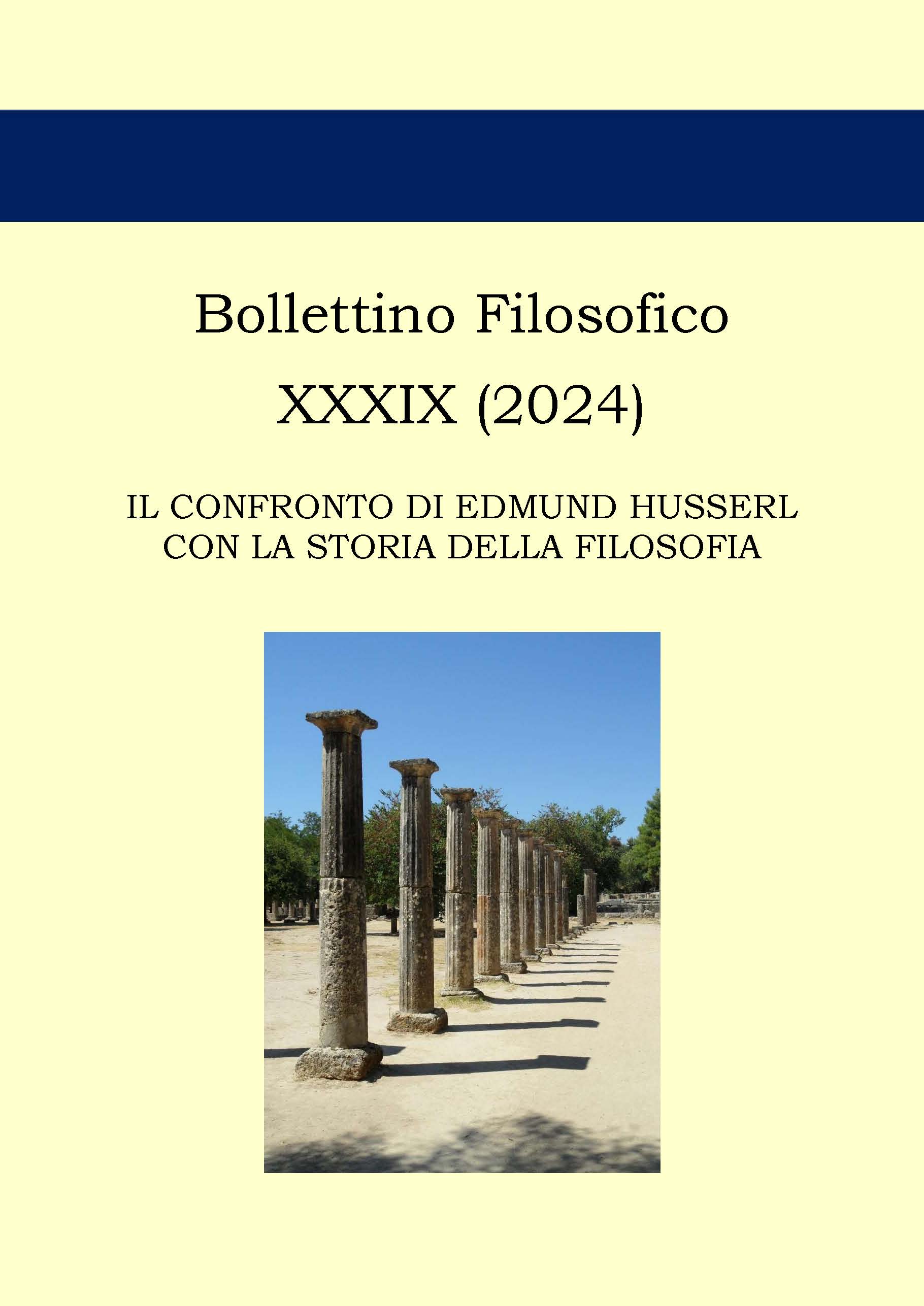Filosofia “more geometrico” e metafisica della sostanza. Husserl e l’oggettivismo di Cartesio
Abstract
This article approaches Husserl’s critique of Descartes by focusing on the issue of the scientificity of philosophy. In particular, it consists in an attempt to answer the following three questions: 1) What is the historical origin of the unprecedented form of objectivism that characterizes Descartes’ philosophy, and, after him, the entire modern rationalist tradition? 2) How did this form of objectivism shape the outcomes of Descartes’ thought, and caused him to miss the goal of a genuinely scientific universal philosophy? 3) How did Descartes’ objectivism become intertwined with a metaphysics based on the concept of substance, i.e., a metaphysics that transcendental phenomenology has the task of overcoming?
Keywords: Descartes, Husserl, Metaphysics, Objectivism, Substance
Downloads
Copyright (c) 2024 Emiliano Trizio

This work is licensed under a Creative Commons Attribution 4.0 International License.
Bollettino Filosofico pubblica in internet, ad accesso aperto, con licenza:
|
|
CCPL Creative Commons Attribution |
L'autore conserva il copyright sul suo contributo, consentendo tuttavia a chiunque "di riprodurre, distribuire, comunicare al pubblico, esporre in pubblico, rappresentare, eseguire e recitare l'opera", purché siano correttamente citati l'autore e il titolo della rivista. L’autore, al momento della proposta di pubblicazione, è inoltre tenuto a dichiarare che il contenuto e l’organizzazione dell’opera è originale e non compromette in alcun modo i diritti di terzi, né gli obblighi connessi alla salvaguardia di diritti morali ed economici di altri autori o di altri aventi diritto, sia per testi, immagini, foto, tabelle, sia per altre parti di cui il contributo può essere composto. L’autore dichiara altresì di essere a conoscenza delle sanzioni previste dal codice penale e dalle leggi speciali per l’ipotesi di falsità in atti ed uso di atti falsi, e che pertanto Bollettino Filosofico è esente da qualsiasi responsabilità di qualsivoglia natura, civile, amministrativa o penale, e sarà dall'autore tenuta indenne da qualsiasi richiesta o rivendicazione da parte di terzi.
